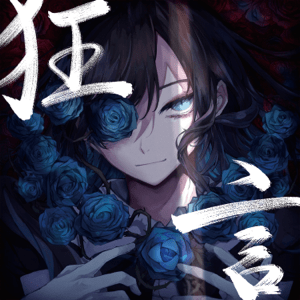
Spitz is a Japanese rock band. The group was originally formed in 1987 by four art school students in Tokyo; it consists of Masamune Kusano, Tetsuya Miwa, Akihiro Tamura, and Tatsuo Sakiyama (drums).

Crystal Kay Williams is a Japanese-American singer, songwriter, actress and radio host.

"Mizérable" is the debut extended-play or mini album of Japanese singer-songwriter Gackt, released on May 12, 1999, by Nippon Crown. It marked his solo debut, four months after he left Malice Mizer, immediately gaining success reaching second position on the Oricon Albums Chart.

Yui, stylized as YUI or yui, is a Japanese singer-songwriter and multi-instrumentalist. In her solo career, she sold more than 5 million physical copies in Japan. She is popular in Japan and in surrounding countries, ranking number one in 2011 Count Down TV "Dearest Female Artist" and Music Station "Artist You Most Want to Marry" polls, as well as Radio Television Hong Kong's "Most Popular Japanese Artist".
Uverworld is a Japanese rock band consisting of six members and originating from Kusatsu, Shiga. They have released eleven studio albums and over thirty singles and have sold over three million records worldwide.

"Flying Easy Loving Crazy" is a song recorded by Japanese singer-songwriter Toshinobu Kubota and Japanese singer Misia for Kubota's fifteenth studio album Timeless Fly. It was released by Mastersix Foundation as the album's second single on March 26, 2008.

Shota Shimizu is a Japanese singer-songwriter and musician from Yao, Osaka, Japan, who debuted in 2008. On June 1, 2008, Shimizu performed at Central Park in New York City, USA, during the annual Japan Day Festival. Shota Shimizu went to a local Christian school in Osaka where he learned how to sing gospel music. He became captivated with soul music, which is how his music career started. He was inspired by Donny Hathaway, Marvin Gaye, and Ray Charles.

Touch Me! is the Japanese singer-songwriter Mai Kuraki's eighth studio album, which was released on January 21, 2009, in Japan by her record label Northern Music. The album was released in two formats; the regular single CD version and a limited CD+DVD version, whose content contained a behind the scenes look at the making of the album, as well as an interview and clips from her 2008 tour. The album follows the same pattern as "One Life", in which Kuraki collaborated with new composers.

Miwa is a Japanese singer-songwriter. She debuted in 2010 with the single "Don't Cry Anymore", which was used as the theme song for the drama Nakanai to Kimeta Hi.

"Don't Cry Anymore" is Japanese singer-songwriter miwa's debut major label single, released on March 3, 2010. It was used as the Nana Eikura starring drama Nakanai to Kimeta Hi's theme song. It was certified gold by the RIAJ for full-length cellphone downloads.

"Change" is Japanese singer-songwriter miwa's third major label single, released on September 1, 2010.

20 [Twenty] is the third studio album released in Japan by South Korean rock band F.T. Island. It is their second studio album under Warner Music Japan and third studio album overall in the country. Recorded in South Korea in the midst of the band's promotions there, the band aimed to make 20 [Twenty] their most mature album to date. The album spawned three singles prior to its release—"Let It Go!", "Distance", and "Neverland"—which all charted within the top ten spots of the weekly Oricon singles chart.

What's Goin' On Ai is the fifth studio album by Japanese-American singer-songwriter Ai, released on September 27, 2006, by Island Records and Universal Sigma. It was released after the successful ballad single "Believe," and the upbeat R&B song "I Wanna Know."

"Love Love Love" is a song recorded by Japanese band Dreams Come True for their eighth studio album, Love Unlimited ∞. It was released as the album's lead single by Epic/Sony Records on July 1995. It is the theme song to the TBS drama series Aishiteiru to Itte Kure. The single's B-side, "Arashi ga Kuru", was also featured throughout the series' twelve episodes. With over two million copies sold, "Love Love Love" is the tenth best-selling Japanese single of all time and remains the band's most successful single.

Love Unlimited∞ is the eighth studio album by Japanese band Dreams Come True. It was released in Japan and throughout Asia on April 1, 1996, through Epic Records Japan, ultimately being their last album released under the label. The record was entirely written by Miwa Yoshida herself, while the composition was handled by her alongside bandmate Masato Nakamura. Much of the recording of Love Unlimited∞ was done in Japan, with additional recording in London and New York City. Material from the album was mastered by Masterdisk. Musically, Love Unlimited∞ is a Pop and R&B album and lyrically focuses on themes of love. The slogan on the obi is, as the title suggests, "Love has no limits."

The discography of Japanese musician Miwa consists of seven studio albums, one compilation album, seven video albums and twenty-five singles. After releasing two independent singles, Miwa debuted through major label Sony Music Entertainment Japan with the single "Don't Cry Anymore" (2010), a song used as the theme song of the drama Nakanai to Kimeta Hi. The song was commercially successful, and was eventually certified Platinum by the Recording Industry Association of Japan. This song, along with her third single "Change", used as a theme song for the anime Bleach, led her debut album Guitarissimo (2011) to debut at number one on Oricon's album charts.

Smile is the eleventh studio album by Japanese singer and songwriter Mai Kuraki. The album was released on February 15, 2017, by Northern Music. It is the follow-up to her 2014 compilation album, Mai Kuraki Best 151A: Love & Hope. The album was released on three editions: standard edition, fan club edition, and limited edition, which is accompanied with a bonus disc. Smile
Anly is a Japanese pop singer-songwriter from Ie, Okinawa. She started playing the guitar at six years old, and started writing music in junior high school. In high school, she played live at various locations in Okinawa and Tokyo, allowing her to release two indie singles in 2015 before being signed to Sony Music Records. She released her debut single "Taiyō ni Warae" in 2015 and her debut album Anly One in 2017.

Kyōgen is the debut studio album by Japanese singer Ado, released January 26, 2022, by Virgin Music. A J-pop and rock record, the album was produced by various Vocaloid musicians.

Uta's Songs: One Piece Film Red is a soundtrack album by Japanese singer Ado, released on August 10, 2022, by Virgin Music. The album accompanies the 2022 Japanese animated film, One Piece Film: Red. The album was preceded by three singles: "New Genesis", "I'm Invincible" and "Backlight", all of which charted within the top 5 of the Billboard Japan Hot 100 and the top 80 of the Billboard Global 200.


















